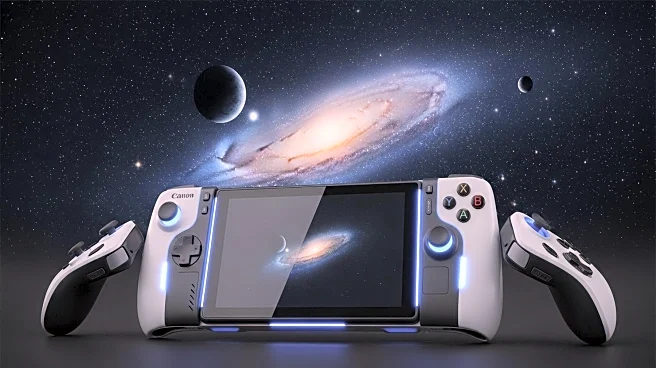What is the story about?
What's Happening?
The Nintendo Switch 2 has successfully ported 'Star Wars Outlaws,' showcasing its capability to handle modern games with improved graphics and performance. Released on September 4, the game maintains a stable 30 fps frame rate and features ray-traced lighting effects, even in handheld mode. Despite not being as powerful as high-end gaming PCs, the Switch 2 offers a visually appealing experience with its Snowdrop engine, enhancing the game's gritty tone through detailed environments and effects. The port, developed by Massive Entertainment and Ubisoft Red Links, includes touchscreen support for certain puzzles, although it lacks a physical edition, relying instead on digital downloads due to storage limitations.
Why It's Important?
The successful port of 'Star Wars Outlaws' to the Nintendo Switch 2 sets a new standard for handheld gaming, demonstrating that developers can optimize modern games for less powerful hardware without compromising on quality. This development is significant for the gaming industry, as it challenges other developers to improve their porting processes for handheld devices. The Switch 2's ability to run complex games like 'Cyberpunk 2077' and 'Star Wars Outlaws' effectively could influence future game releases and encourage more titles to be adapted for portable consoles, potentially expanding the market for handheld gaming.
What's Next?
With the high expectations set by the successful port of 'Star Wars Outlaws,' upcoming games like 'Final Fantasy VII Remake Intergrade' and 'Elden Ring' are anticipated to follow suit in optimizing their performance for the Switch 2. Developers are now under pressure to ensure their games maintain playable frame rates on the handheld console. The release of 'Borderlands 4' on October 3 will be a critical test for developers to meet these expectations, as the game has faced performance issues on other platforms.
Beyond the Headlines
The Switch 2's success in porting 'Star Wars Outlaws' highlights the potential for handheld consoles to offer immersive gaming experiences traditionally reserved for more powerful systems. This shift could lead to a reevaluation of game design priorities, focusing on optimizing for portability and accessibility. Additionally, the lack of a physical edition raises questions about game preservation and the future of digital-only releases, which may impact consumer choices and industry practices.















